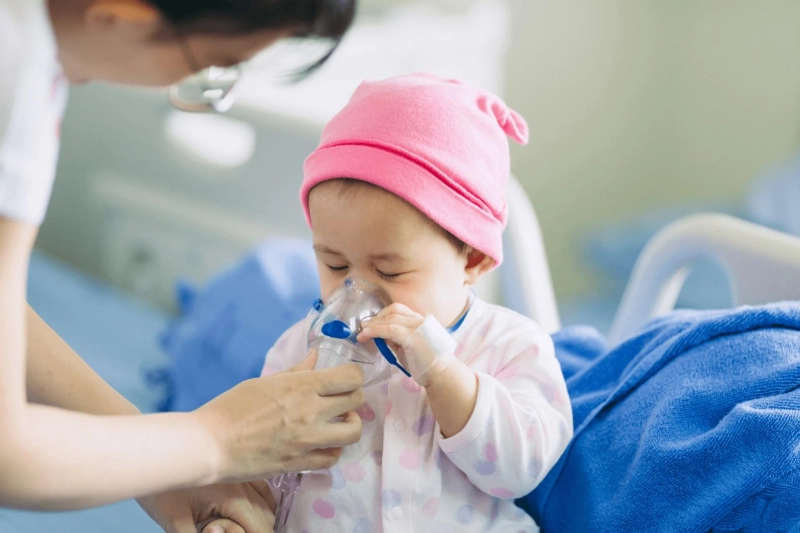Recovering from pneumonia can be a gradual process, often requiring patience and careful observation. Some individuals bounce back quickly, while others may notice lingering symptoms that raise concern.
One of the most common issues post-recovery is difficulty breathing. If symptoms seem to persist or worsen over time, it could signal something more complex. In such cases, consulting a Pneumonia specialist in Manchester becomes essential for thorough evaluation and timely treatment.
Persistent Shortness of Breath
Shortness of breath is expected during early recovery, but it should slowly improve with rest and basic care. If the sensation continues long after the infection is treated, it's important to track the duration and intensity.
Persistent breathlessness that interferes with daily activity may point to underlying inflammation or lung stiffness. Seeking support from a Private Respiratory Paediatrician in Manchester is a step toward identifying post-infection complications such as pleural thickening or decreased lung capacity.
In Greater Manchester, around 12% of respiratory-related hospital visits involve pneumonia cases, making specialist care critical for long-term recovery. Extended symptoms shouldn’t be dismissed without a thorough check-up.
Cough That Won’t Quit
A lingering cough is not uncommon after pneumonia, as the lungs work to clear leftover mucus. For most people, the symptom fades within a few weeks, but in some cases, it stretches beyond that window.
If a person continues to experience a deep or dry cough, consulting a cough specialist doctor in Manchester helps rule out airway inflammation or developing asthma. Long-term coughing might also suggest hypersensitive airways or residual infection.
Families in Manchester often seek follow-up care due to the rising number of paediatric respiratory cases. Identifying the cause early ensures that recovery is not only quick but also complete.
Wheezing or Chest Discomfort
Wheezing can occur if airways remain tight or inflamed even after pneumonia clears. This high-pitched sound, especially when paired with chest discomfort, should be taken seriously and monitored closely.
Those noticing these symptoms in children may benefit from visiting the Manchester Child Lung Clinic, where evaluations focus specifically on young lungs. Children may not express breathing difficulties clearly, so physical signs play a vital role in diagnosis.
Key indicators that require attention include:
· Wheezing during sleep or physical activity
· Chest retraction while breathing
· Reduced playfulness or fatigue after mild activity
Each of these signs may suggest the need for tailored respiratory treatment.
Return of Fever or Night Sweats
Fever usually disappears a few days into antibiotic therapy, making its return a sign that something might not be healing as expected. Night sweats or temperature spikes can hint at low-grade infections or complications inside the lungs.
A detailed lung scan or blood test can reveal any lingering signs of pneumonia or additional infection. In children, a Private Paediatric Respiratory Physician in the UK may order chest imaging to ensure there’s no fluid retention or abscess formation.
Manchester’s paediatric care centres have seen a 20% increase in follow-up appointments for children recovering from chest infections. This data shows that families are being proactive with their children's health, seeking expert guidance at the first sign of concern.
Trouble Resuming Normal Activity
After pneumonia, most people expect to slowly return to their normal pace. If even light tasks lead to exhaustion or breathlessness, this could point to an incomplete recovery or a separate condition triggered by the illness.
Searching for the “best asthma specialist near me” provides access to specific tests like spirometry, which helps assess lung function in real-time. Adults and children alike benefit from customised recovery plans to strengthen respiratory capacity.
In such recovery programmes, individuals may be guided through:
· Pulmonary rehabilitation exercises
· Nutritional support for lung health
· Breathing techniques to ease airflow
Each approach is designed to support full healing and a gradual return to daily life without discomfort.
Conclusion
Breathing problems after pneumonia can affect anyone, regardless of age or medical history. Prompt attention from specialists ensures the lungs are functioning as they should. In a city like Manchester, where respiratory health services are well-established, patients have access to quality care that helps them bounce back fully.



